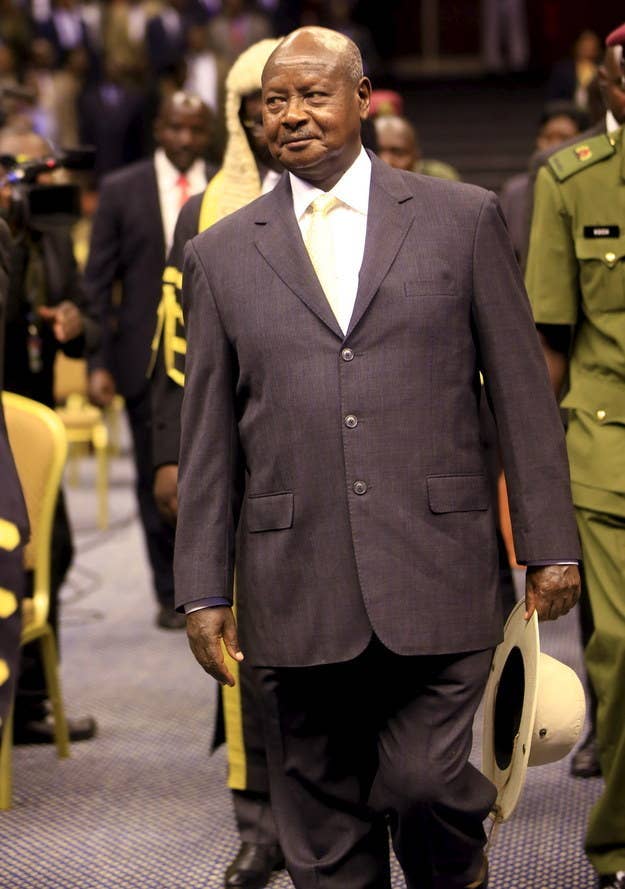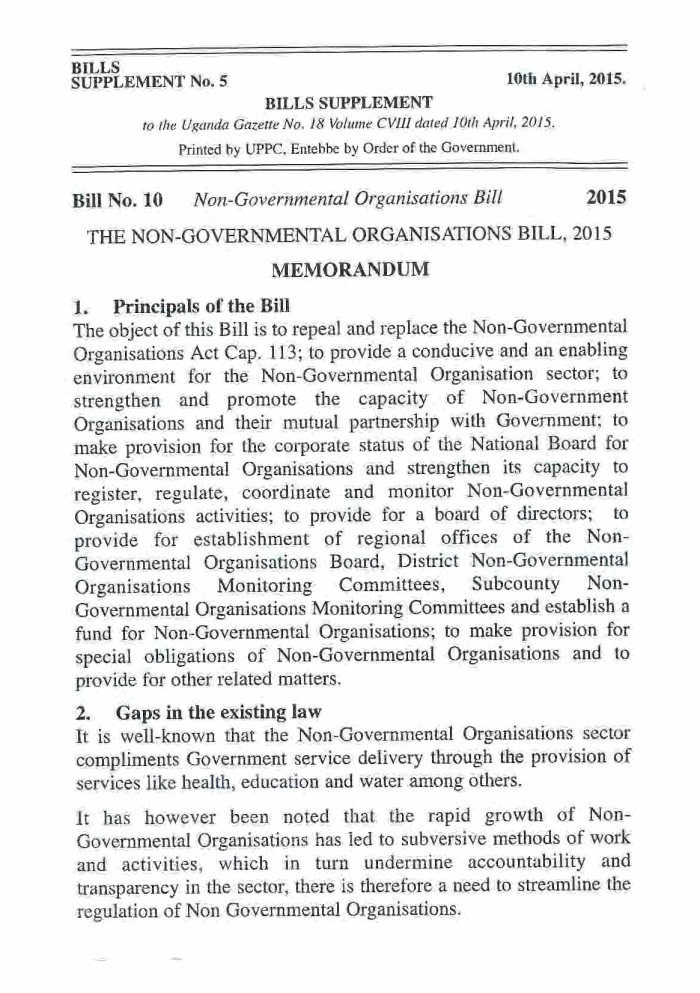
Ugandan lawmakers are due to take up legislation in an emergency session starting Sept. 1 that could achieve one of the key goals of the sweeping anti-LGBT legislation struck down by the country's Constitutional Court in 2014: the criminalization of groups supporting LGBT rights.
The proposal, known as the NGO bill, is about much broader issues than LGBT rights. It would expand the power of the government's current NGO Board, allowing it to ban non-governmental organizations for essentially any reason, including when a group's goals are "in contravention of the law" or if it is "in the public interest to refuse to register the organization." Any organization that doesn't register, which is how many LGBT groups currently operate in Uganda, would be considered illegal.
The timing — interrupting campaigning for primaries for spots to compete in the 2016 national election — suggests it is heavily motivated by political concerns. Civil society organizations are seen as strongly allied with the opposition coalition called the Democratic Alliance challenging the nearly 30-year rule of President Yoweri Museveni.
But LGBT activists say Museveni's political party is able to generate support for the bill in part because it promises to allow them to close LGBT rights organizations. And doing so as part of a far broader proposal may be attractive to lawmakers because Museveni has already staked out his opposition to passing a new law targeting LGBT rights because it would alienate the country from Western powers.
"These guys are cunning," said Clare Byarugaba, who co-chaired the coalition of human rights groups that fought 2014's anti-LGBT law. "They understand that having a stand alone anti-gay law shall be met with backlash and resistance and they shall be accused of targeted discrimination.... On the surface [the NGO bill seems] to be affecting broader civil society space but have very targeted consequences towards LGBT organizing."
The 2014 law was called the Anti-Homosexuality Act, but the the bill did not the criminalization of same-sex intercourse. Ugandan law has punished sodomy with up to life in prison under a provision that has been in place since the country was a British colony. The bill's most significant impact was to introduce provisions making it a crime to "abet homosexuality" and to advocate for LGBT rights, and it was was used to target an NGO with the primary mission of supporting refugees during the six months it was in effect.
"There is absolutely no doubt that a significant part of the NGO bill seeks to reintroduce in part the things that were in the Anti-Homosexuality Act," said Nicholas Opiyo, a lawyer with a civil liberties group called Chapter 4 who made the winning argument that got the law struck down last August. And it manages to harness "elements of the anti-gay movement," he continued, to win support for legislation that "appears to attempt to undermine what's seen in the country as an alliance between civil society and the [opposition] political parties."
Cissy Kagaba, executive director of the Anti-Corruption Coalition of Uganda, said in an email to BuzzFeed News, "We are approaching elections and government is concerned about our ability to mobilize and influence the masses against corruption and related other related evils that the government is engaged in." If the bill passes, she warns, "[w]ithin in 6 months we shall cease to exist" and employees will censor themselves fearing they could be arrested if they run afoul of the government.
The government already maintains a good deal of control over NGOs through the existing system of registration. Laws such as the 2012 Media Law and the 2014 Anti-Pornography Law also grant broad powers to censor communications. Groups like the Anti-Corruption Coalition have also lost computers and data in mysterious robberies that were never investigated, and the Ugandan government has deployed spyware apparently developed by Italian and Israeli companies in an apparent effort to collect information on NGOs' work.
The NGO bill has not provoked the same outcry as the Anti-Homosexuality Act did from the nations whose donations form a substantial portion of the Ugandan government's budget. U.S. Ambassador Scott DeLisi, who is due to retire later this year, said little about the bill during an interview with Ugandan media on Friday, leaving activists worried.
"There is concern from civil society in Uganda that the U.S. has not been seen to be spending more political capital on a matter that is so fundamental and crucial as freedom of expression, association, assembly and the right to organize on issues around discrimination," said Asia Russel, an American based in Kampala who directs the global HIV rights group Health Gap.
Spokespeople for the White House and U.S. State Department did not respond to request for comment.
Along with the NGO bill, Parliament is scheduled to use its special session to create new legislative districts. Some peculiar scheduling machinations — an announcement earlier this week that the session would be postponed followed a day later by another announcement that it would begin on time — may hint that the ruling party does not have the votes for the legislation locked up.
But the timing of the vote gives President Museveni and other party leaders a powerful lever. Primaries will be held next month, and lawmakers who want funds from their party to campaign for reelection may be afraid of loosing access to the party's war chest.
"I think that whatever Museveni wants he will get," said Opiyo, the civil rights lawyer. "It depends on how resolved he is to get it."

